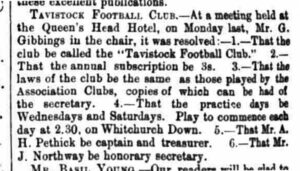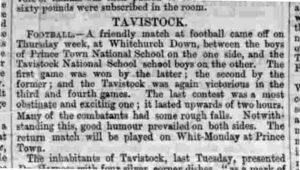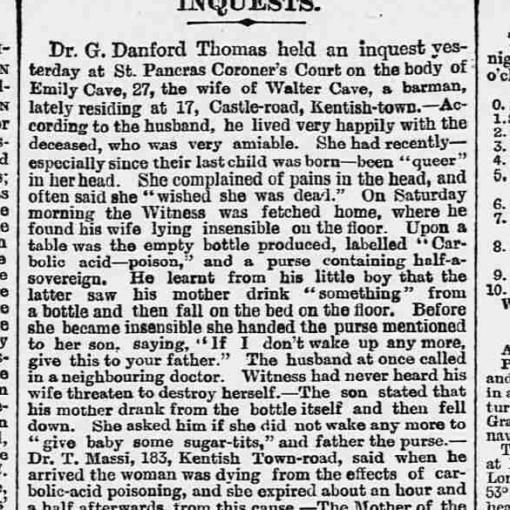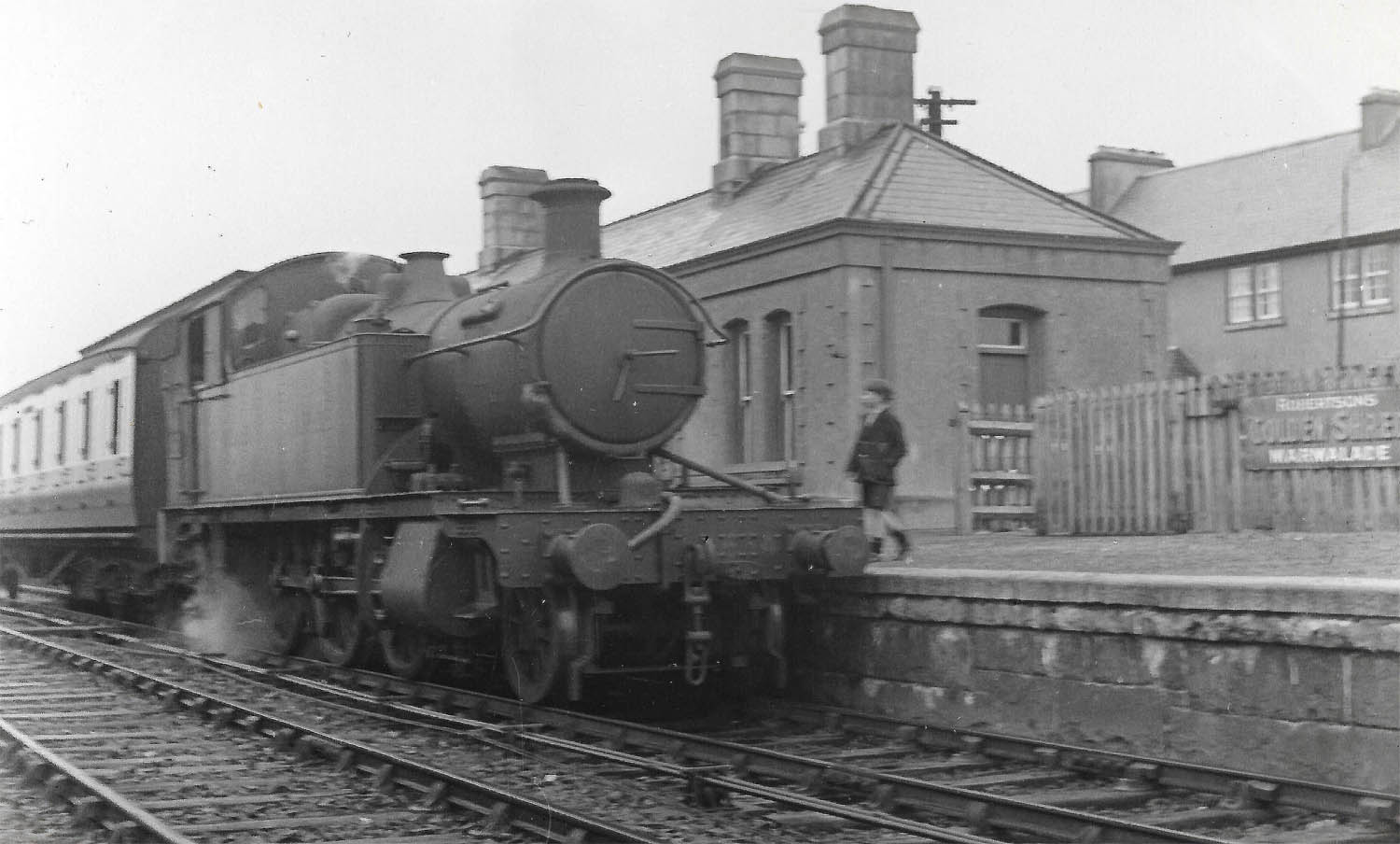Tavistock Gazette – Friday 22 October 1875

Tavistock Football Club. — At a meeting held at the Queen’s Head Hotel, on Monday last, Mr. G. Gibbings in the chair, it was resolved: —
- That the club be called the “Tavistock Football Club.”
- That the annual subscription be 3s.
- That the laws of the club be the same as those played by the Association Clubs, copies of which can be had of the secretary.
- That the practice days be Wednesdays and Saturdays. Play to commence each day at 2.30, on Whitchurch Down.
- That Mr. A. H. Pethick be captain and treasurer.
- That Mr. J. Northway be honorary secretary.
1. Early Adoption of Association Football Rules
The club’s decision to follow the rules of Association Football reflects the early adoption of a standardised set of regulations. This period (the 1870s) was crucial in the history of football, as the sport was solidifying its identity. The Football Association (FA) had only been formed in 1863, and many clubs were still playing various local versions of the game. By choosing to align with the Association rules, Tavistock Football Club positioned itself within the modern framework of what we now know as soccer, rather than rugby or other forms of football.
2. Growth of Local Football Clubs
The establishment of a formal football club in Tavistock illustrates the growth of football culture in smaller towns and rural areas. While larger cities like London, Manchester, and Sheffield were early centres of football activity, the spread to places like Tavistock shows the sport’s increasing popularity. It highlights the grassroots development of football across the country, which eventually led to the formation of regional leagues and competitions.
3. Community Organisation and Social Impact
The meeting and formation of the Tavistock Football Club at the Queen’s Head Hotel is a glimpse into the social history of the time. It shows how local football clubs were often born out of community gatherings and social networks, with local businessmen and community leaders taking on key roles. The fact that a meeting was formally chaired and specific roles (captain, treasurer, secretary) were appointed demonstrates the level of organisation and seriousness with which early football clubs were established.
4. Legacy of the Club
Tavistock Football Club continued to operate and evolve, it could be among the oldest football clubs still in existence today. Many clubs founded in the 1870s have a long history and are now part of well-established leagues, contributing to the development of English football as the world’s most popular sport.
In summary, the formation of Tavistock Football Club is a reflection of a pivotal moment in the history of football, showcasing the sport’s transition towards modern organisation, the spread of standardised rules, and the increasing role of local communities in fostering what would become a global phenomenon.

However, this report from the Exeter and Plymouth Gazette on Saturday, 21 May 1859, details a friendly football match played between the schoolboys of Prince Town National School (from Princetown) and Tavistock National School at Whitchurch Down, near Tavistock.
The report says: “A friendly match at football came off on Thursday week, at Whitchurch Down, between the boys of Prince Town National School on the one side, and the Tavistock National School school boys on the other. The first game was won by the latter; the second by the former; and the Tavistock was again victorious in the third and fourth games. The last contest was a most obstinate and exciting one; it lasted upwards of two hours. Many of the combatants had some rough falls. Notwithstanding this, good humour prevailed on both sides. The return match will be played on Whit-Monday at Prince Town”.
Details of the Match:
- The game was played the previous week (i.e., mid-May 1859).
- It was a series of four matches or games:
- Tavistock boys won the first game.
- Prince Town boys won the second game.
- Tavistock triumphed again in the third and fourth games.
- The final game was notably intense, lasting over two hours, which is exceptionally long by modern standards.
- The match was physically challenging, as several players took rough falls, yet the atmosphere remained good-natured and friendly.
- A return match was scheduled for Whit-Monday (the Monday after Pentecost), to be held at Prince Town.
Historical Importance:
- Earliest Recorded Game in Tavistock:
- This is an early documented instance of a football match in the Tavistock area, occurring well before the formal establishment of local football clubs. The match took place in 1859, at a time when football was still played in an informal and varied format, often differing from region to region.
- Early Example of School Football:
- The match was played between schoolboys, indicating the growing popularity of the sport among young people and its adoption in educational institutions. This aligns with the trend of football gaining traction in public schools, which contributed to the development and standardisation of the game.
- Community Sporting Events:
- The friendly nature of the match, with the promise of a return game, reflects the importance of community and sporting camaraderie during the period. Despite rough play, the emphasis on good humour shows the sport’s role in fostering social ties and local pride.
- Evidence of Football’s Evolution:
- This game predates the official codification of football rules by The Football Association (FA) in 1863. The match likely followed traditional or locally accepted rules rather than standardised association football laws. It provides a snapshot of how football was played in its early, unregulated form.
In summary, this report is historically significant as it offers a glimpse into the pre-codified era of football in England, highlighting its early spread into rural areas like Tavistock and its popularity among schoolchildren. The event is a valuable piece of local and sporting history, showing the beginnings of what would later become a structured, standardised, and globally dominant sport.




